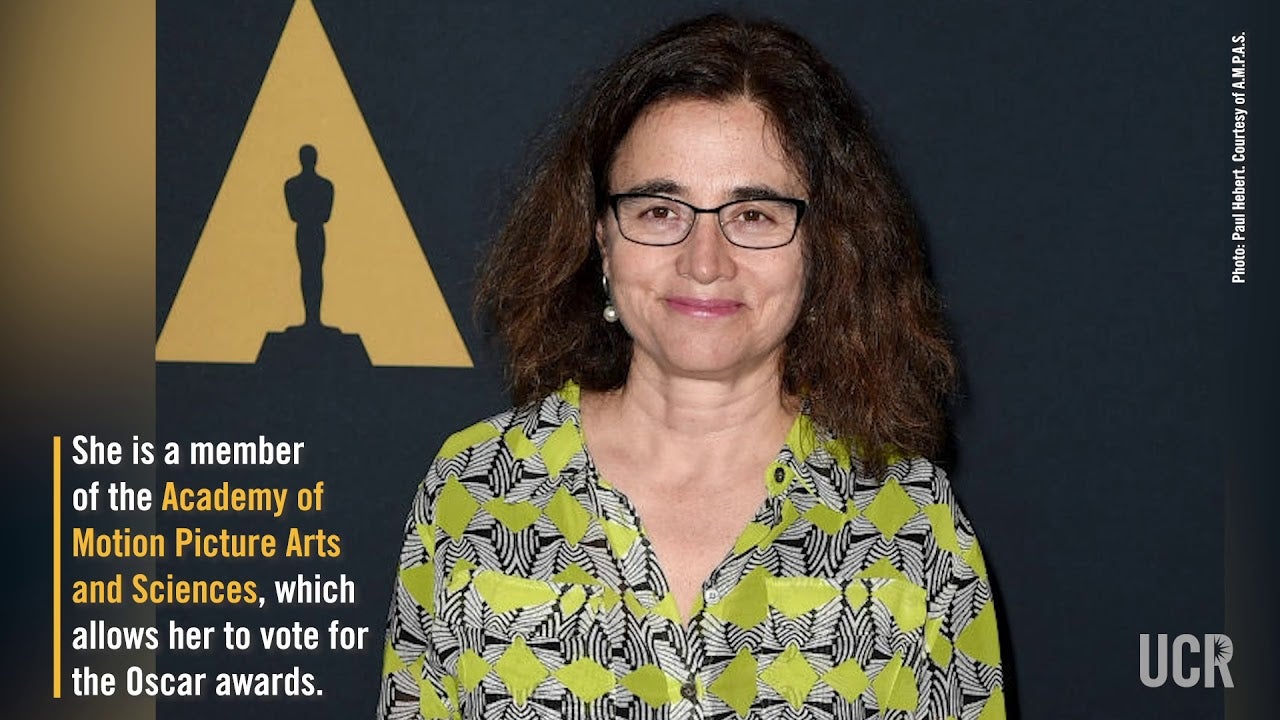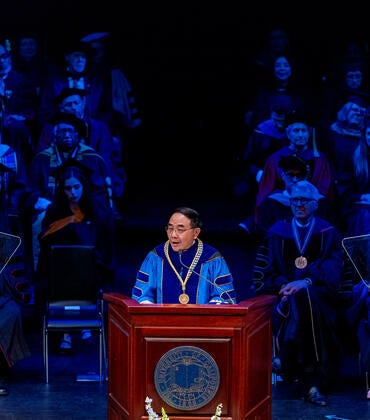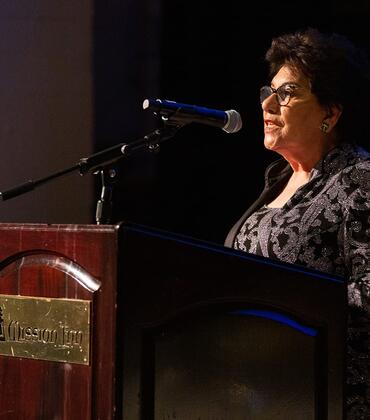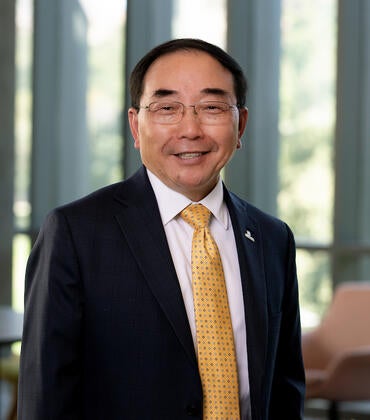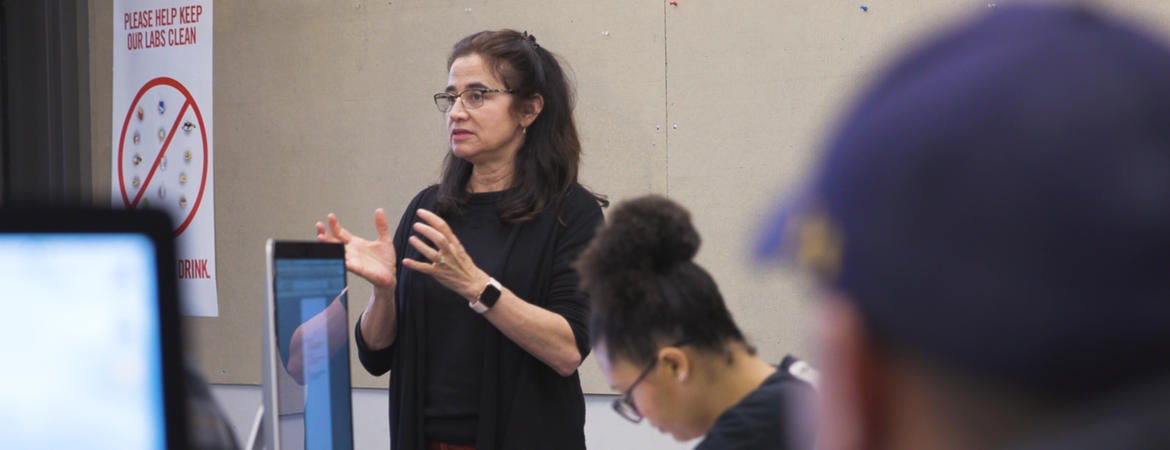
As a kid, Patricia Cardoso loved to tell stories about herself. As an adult, the award-winning film director, producer and writer, loves to capture a character’s essence on the big screen.
Cardoso, a member of the Academy of Motion Picture Arts and Sciences, is now teaching that to students at the University of California, Riverside.
She has directed films such as “Real Women Have Curves” (2002), “Lies in Plain Sight” (2010), and “El Paseo de Teresa” (2017). Last year she worked with Ava DuVernay to direct an episode of “Queen Sugar” for the Oprah Winfrey Network and most recently she’s been directing for Netflix, including an episode of “Tales of the City,” an adaptation from Armistead Maupin’s novels.
This fall, Cardoso joined UCR’ Department of Theatre, Film, and Digital Production and is currently teaching two courses. The Colombian-born creator said she identified with the students and with UCR’s mission — and knew she had found a home when she saw the oro blanco grapefruit trees around campus.
“I think I just fell in love with the school and the people here. I love that student here are students of color, first generation,” Cardoso said. “I feel valued here and I feel I can share with the students the truth of what life is like in Hollywood as a filmmaker of color and how I’ve learned to circumvent so many obstacles.”
Cardoso has carved a career for herself in an industry with only 4 percent of female directors, of whom less than 1 percent are Latinas.
“It’s a cruel reality, but it is what it is. But for students, this doesn’t mean they can’t do it,” Cardoso said.
Her goal is to equip future directors, producers, and writers with a skill set that will allow them to jump into a world that now requires long-form, serialized storytelling, such as seen on Netflix. She also wants to reinforce the importance of thinking like an entrepreneur and is already connecting her students with UCR’s office of Research and Economic Development for project funding opportunities.
For Cardoso, her films are not just about making it in Hollywood. They are about great storytelling, about capturing a character’s persona and bringing it to life. Her films highlight the complexity of human beings and the kindness that exists within a person. That is true for “The Water Carrier,” a film she produced as a graduate student at UCLA. The story was a tribute to her loving grandfather, a medical doctor who completed the first cataract eye surgery in Colombia, in 1926. “The Water Carrier,” won a Student Academy Award gold medal from the Academy of Motion Picture Arts and Sciences in 1996.
It was also true for “Real Women Have Curves.” The film broke ground, as women of color were behind of and in front of the camera. An ordinary, hardworking Mexican-American family was captured in beautiful scenes in downtown Los Angeles. It was a story full of culture, parenting, and decision-making that resonated with Latino audiences. The film won Cardoso the Audience Award at the Sundance Film Festival in 2002.
For Cardoso, storytelling comes naturally. She was an anthropologist in her native Colombia, traveling the country, deep into the Amazons, the Andes, the plateaus. She met people with incredible journeys, including a little boy who mastered many languages despite living in a poor, rural community.
She drew pictures on index cards — without knowing that she was making her own storyboards.
Cardoso imagined herself as a novelist, inspired by her country’s beauty and by writers such as Gabriel García Márquez. But Colombia did not have colleges with creative writing or film schools. She resorted to anthropology and discovered writing research papers was not soul-fulfilling.
“I wrote my thesis in a typewriter that belonged to my grandfather using only red ink. It symbolized my blood, flowing out of my body. I was dying because I couldn’t be creative,” Cardoso said.
She came to UCLA’s master’s in fine arts program in 1987, thanks to a Fulbright scholarship.
Now, her creativity is boundless. She’s designed original courses for UCR students, combining her Hollywood experience with academics. Having Cardoso on the faculty of the Department of Theatre, Film, and Digital Production is an unprecedented opportunity for students, UCR and the community, said Rickerby Hinds, current department chair and professor of playwriting.
“She is also one of the very few working women directors in the industry, which gives our students real-time information and insight into the careers they are looking to pursue,” Hinds said. “Her passion for teaching and mentoring has become immediately evident even in her short time in our department.”
Throughout her career, Cardoso has learned many stories and many lessons. She’s found ways to overcome adversity and keeps going.
“What is important in life, is to not get what you want, but to like what you have,” Cardoso said.
